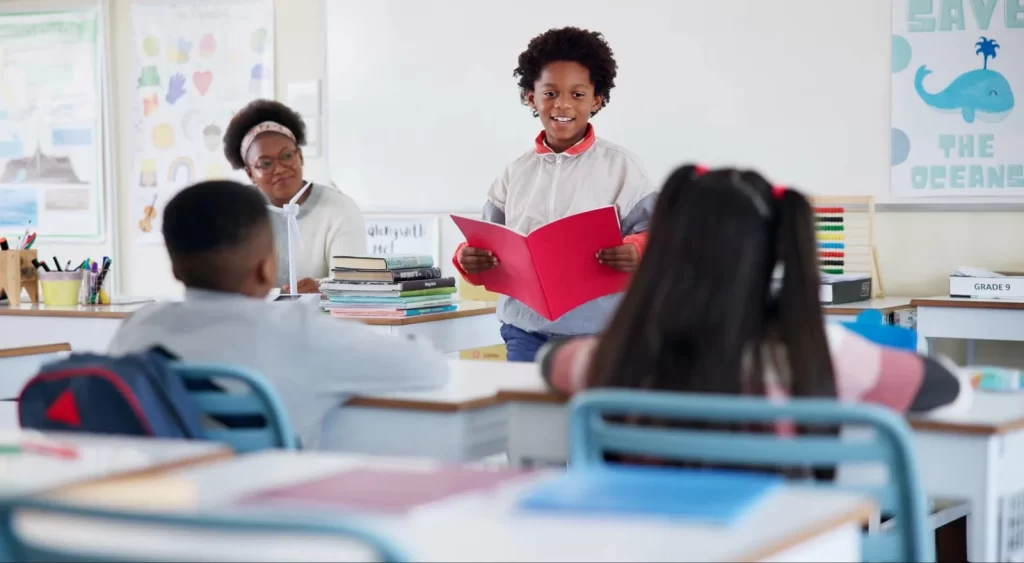Curriculum development in education serves as the foundation for the learning experiences that shape student outcomes. In Abu Dhabi, ongoing innovations in curriculum development are helping schools prepare students for a world that demands new skills and adaptability. By continuously improving curriculum design and implementation, Abu Dhabi schools are advancing education quality and relevance.
This article offers a comprehensive overview of the latest innovations and trends in curriculum development in education across Abu Dhabi schools, explaining how these changes are impacting students and educators alike.
Overview of Curriculum Development in Education and Its Role in Abu Dhabi
Curriculum development is the systematic process of designing, organizing, and refining the educational content delivered to students. It determines what students learn, how they learn it, and how their learning is assessed. In Abu Dhabi, the importance of curriculum development in education cannot be overstated, as it directly influences student engagement, knowledge retention, and skill development.
The education sector in Abu Dhabi has recognized that continuous innovation in curriculum development is necessary to meet evolving academic standards, workforce demands, and societal expectations. Without ongoing updates and improvements, curricula risk becoming outdated or irrelevant, limiting students’ potential. Therefore, schools are adopting new approaches and methodologies to enhance curriculum quality and effectiveness.
Understanding Curriculum Development in Education
Curriculum development in education follows a structured process that ensures educational goals align with teaching methods and student needs. The curriculum development process involves multiple steps, including needs assessment, content selection, instructional design, implementation, and evaluation. Each stage requires input from educators, administrators, and other stakeholders to build a curriculum that is balanced, inclusive, and adaptable.
In Abu Dhabi schools, curriculum development is influenced by both national education policies and global educational standards. The process is dynamic, involving regular review cycles to incorporate feedback, advances in pedagogy, and emerging trends.
Key Drivers for Innovation in Curriculum Development in Abu Dhabi
Several factors motivate innovation in curriculum development across Abu Dhabi schools:
- Rapid Technological Change: As technology reshapes workplaces and society, curricula must equip students with digital skills and the ability to learn independently.
- Global Competitiveness: Abu Dhabi aims to develop a workforce that can compete globally, necessitating curricula that emphasize critical thinking, creativity, and adaptability.
- Diverse Student Population: With students from many cultural backgrounds, curricula need to be inclusive and culturally responsive.
- Focus on Lifelong Learning: Preparing students for a career that may involve multiple transitions means emphasizing skills like problem-solving and self-directed learning.
- National Education Goals: The UAE’s education strategy guides curriculum priorities to support national development plans.

Emerging Trends in Curriculum Development Across Abu Dhabi Schools
Integration of STEM and STEAM Education
One significant trend in curriculum development in education is the integration of STEM (Science, Technology, Engineering, and Mathematics) and STEAM (which adds Arts) education. Abu Dhabi schools are embedding STEM and STEAM principles to promote innovation and creativity. These subjects encourage hands-on learning, experimentation, and problem-solving, helping students develop skills necessary for the modern economy.
Personalized and Competency-Based Learning
Personalized learning tailors education to meet each student’s unique needs and pace. Competency-based learning focuses on mastering specific skills and knowledge rather than seat time. Abu Dhabi schools are incorporating these models to provide more flexible and effective learning experiences. This trend supports student agency and improves engagement by making learning relevant to individual strengths and interests.
Use of Technology and Digital Platforms
Technology is reshaping curriculum delivery. Schools in Abu Dhabi utilize digital platforms for blended learning, virtual classrooms, and interactive content. These tools support differentiated instruction and provide immediate feedback, enabling teachers to adapt their methods. The increasing availability of educational technology also fosters digital literacy, a vital 21st-century skill.
Global and Cultural Competency
Given Abu Dhabi’s multicultural society, curricula are designed to foster global awareness and cultural competency. Students learn about diverse cultures, global issues, and international collaboration. This helps prepare them to work and live in a globalized world, respecting diversity and understanding complex international dynamics.
Social-Emotional Learning (SEL)
SEL is gaining prominence in curriculum development, emphasizing emotional intelligence, empathy, and interpersonal skills. Abu Dhabi schools integrate SEL into the curriculum to support student well-being, resilience, and effective communication. By developing these skills, students are better prepared to handle social challenges and academic pressures.
Innovative Curriculum Development Process Practices in Abu Dhabi
Collaborative Curriculum Design
Abu Dhabi schools increasingly adopt collaborative approaches involving teachers, education experts, and community stakeholders in curriculum development. This teamwork ensures curricula are relevant, practical, and aligned with real-world needs. Collaboration allows for diverse perspectives and greater buy-in from educators implementing the curriculum.
Continuous Curriculum Evaluation and Agile Revisions
Schools conduct ongoing evaluations to monitor curriculum effectiveness. Feedback from students, teachers, and parents guides agile revisions, allowing curricula to stay current with educational research and societal changes. This cycle of reflection and adaptation is central to innovation in curriculum development in education.
Pilot Programs and Experimental Curricula
Selected Abu Dhabi schools run pilot programs to test new curriculum models before wide-scale adoption. These pilots allow educators to assess innovations such as new teaching strategies or interdisciplinary content in controlled settings, ensuring they meet student needs before full implementation.
Incorporation of Interdisciplinary Approaches
Breaking traditional subject silos, curricula now often include interdisciplinary content. For example, science lessons may integrate math and technology, while language classes incorporate cultural studies. This approach helps students make connections across subjects, enhancing critical thinking and problem-solving skills.

Challenges and Solutions in Implementing Curriculum Innovations
Training and Professional Development Needs
Introducing new curricula demands well-prepared teachers. Abu Dhabi invests in ongoing professional development to equip educators with the skills to deliver innovative content effectively. Workshops, coaching, and peer collaboration help teachers adapt to new methods.
Balancing Innovation with Standardized Testing Requirements
Curriculum innovation must align with assessment standards. Schools balance creative learning approaches with preparing students for required national and international exams. Strategies include embedding exam skills within project-based and personalized learning models.
Ensuring Equitable Access to New Learning Technologies
While technology enhances curriculum delivery, not all students have equal access to devices and internet connectivity. Abu Dhabi schools address this through resource allocation, providing devices to students in need, and developing offline learning materials.
Strategies to Overcome Challenges
Abu Dhabi schools use several strategies to overcome these challenges, such as phased implementation of curriculum changes, involving all stakeholders early, and investing in infrastructure and teacher support.
Summary of Key Innovations and Trends in Curriculum Development in Abu Dhabi Schools
Innovations in curriculum development in education across Abu Dhabi schools focus on creating student-centered, skill-based, and technology-enhanced learning experiences. Key trends include the integration of STEM/STEAM, personalized learning, use of digital platforms, global and cultural competence, and social-emotional learning. The curriculum development process is increasingly collaborative, continuous, and experimental, with a focus on interdisciplinary learning.
Addressing challenges through training, balancing assessments, and ensuring access to technology allows Abu Dhabi schools to maintain effective curriculum development. By adopting these innovations, schools provide students with relevant, future-ready education that prepares them to succeed in a complex, global world.


